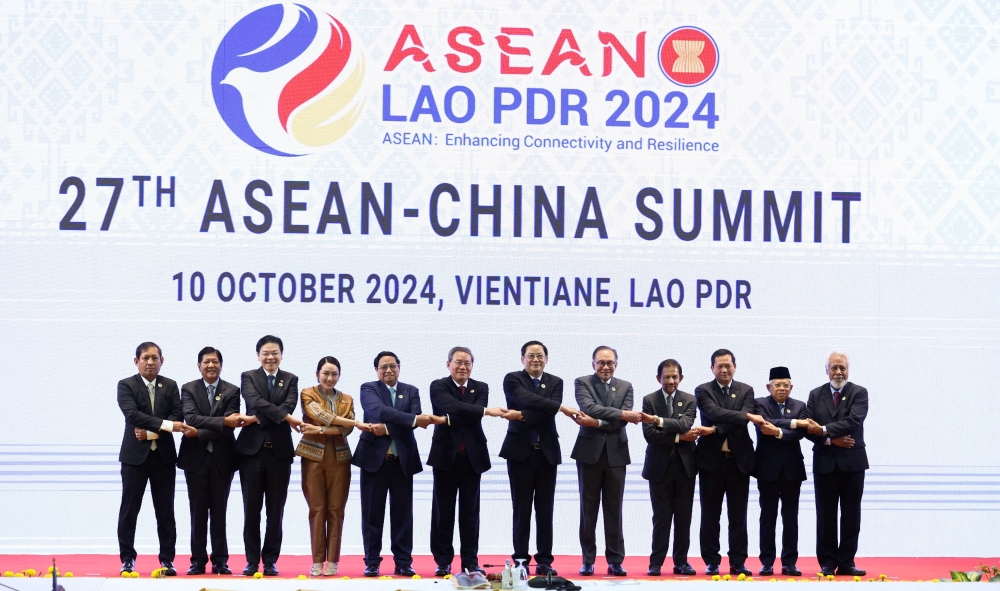DECEMBER 22 — As Transport Minister Anthony Loke recently emphasised at the Malaysia-China Summit 2024, Malaysia’s openness to international collaboration has been pivotal to its economic prosperity. This sentiment takes on greater significance as Malaysia prepares to assume the Asean Chairmanship in 2025, a role that presents a critical opportunity to redefine Asean-China relations amid shifting geopolitical and economic landscapes.
Loke’s statement, highlighting Malaysia’s strategic commitment to the Madani Economy framework and sustainable development, resonates with the broader responsibilities Malaysia will bear as Asean Chair. The challenges confronting Asean today, ranging from economic uncertainty to technological disruption and regional security concerns require visionary leadership. Malaysia, with its historical ties to China and a proven track record as a bridge-builder, is uniquely positioned to lead Asean toward a future of stability and shared prosperity while maintaining its commitment to neutrality and balance in international relations.
Malaysia’s relationship with China dates back to the establishment of diplomatic ties in 1974, laying a foundation for what has become a cornerstone of Asean-China cooperation. This enduring bond has facilitated landmark initiatives such as the Asean-China Free Trade Area (ACFTA) and the Belt and Road Initiative (BRI), advancing economic integration and infrastructure development across the region.
However, Malaysia’s 2025 Chairmanship demands more than a continuation of these efforts. It requires bold strategies to address contemporary challenges, ensuring that Asean-China relations evolve to meet the demands of a rapidly changing world.
In 2023, trade between Asean and China reached a record high of USD 702 billion, solidifying China’s position as Asean’s largest trading partner for the 15th consecutive year. This robust economic interdependence underscores the importance of resilient supply chains, smart logistics and sustainable development to safeguard the region against global economic fragmentation.
Malaysia can further leverage its chairmanship to promote Industry 4.0 partnerships, emphasising digital transformation in areas like artificial intelligence, green technology and fintech. Such collaborations can position Asean as a hub of innovation, future-proofing its economies while ensuring that benefits are shared across all member states. Malaysia can also advocate for diversifying Asean’s trade partnerships to reduce over-reliance on any single trading partner.
As Asean Chair, Malaysia has an opportunity to prioritise regional stability by strengthening multilateral cooperation and fostering open dialogue. Instead of focusing solely on contentious issues, Malaysia can champion confidence-building measures and collaborative initiatives that enhance trust among Asean members and external partners, including China.
By promoting joint efforts in areas such as maritime safety, disaster response and environmental protection, Malaysia can encourage constructive engagement that benefits the region as a whole. These initiatives contribute to stability while reinforcing Asean’s centrality as a platform for peaceful cooperation in an increasingly polarised geopolitical environment.
Economic and security ties are vital, but cultural diplomacy remains an underutilised tool in strengthening Asean-China relations. Malaysia’s multicultural heritage positions it uniquely to foster deeper people-to-people connections. Initiatives like expanded student mobility programmes, vocational training and tourism exchanges could bridge cultural divides and foster mutual trust.

Leaders stand for a group photo during the 27th Asean-China Summit at the National Convention Centre in Vientiane October 10, 2024. — Reuters pic
Currently, Malaysia and China have established mutual visa exemption agreements for short-term stays, facilitating tourism and business travel. These agreements have been pivotal in boosting tourism and strengthening bilateral relations, showcasing the potential of such initiatives to deepen Asean-China ties.
As the climate crisis looms large, sustainability must be at the forefront of Asean-China cooperation. Malaysia’s chairmanship provides an opportunity to prioritise green initiatives under the BRI framework, such as renewable energy projects and eco-friendly infrastructure. These efforts align with global Environmental, Social and Governance (ESG) standards and position Asean-China cooperation as a model for sustainable development.
Malaysia’s unique blend of multiculturalism and balanced diplomacy positions it as an ideal leader for Asean-China cooperation. This approach, grounded in inclusivity and mutual respect, provides a strong foundation for fostering deeper collaboration. To ensure meaningful progress, this vision must extend beyond government initiatives, engaging businesses, civil society and educational institutions to reflect Asean’s ethos of shared growth and harmony.
The world is indeed watching as Malaysia steps into this critical role. By rising to the challenge, Malaysia can transform its Asean Chairmanship into a defining moment for Asean-China relations, pioneering a path of peace, prosperity and sustainability for the region and beyond.
* Teh Choon Jin, PhD is Registrar, Asia Pacific University of Technology & Innovation (APU) and Vice President, Malaysia China Welfare Advisory Society.
** This is the personal opinion of the writer and does not necessarily represent the views of Malay Mail.







